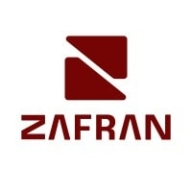


Tenable Nessus and SentinelOne Singularity Identity both compete in the cybersecurity market. Tenable Nessus appears to have an advantage due to its affordability and extensive support features, making it a favored choice for those prioritizing cost-effectiveness and integration capabilities.
Features: Tenable Nessus is recognized for its robust vulnerability management, covering scanning and comprehensive reporting, with seamless platform integrations. Its vulnerability prioritization is also noteworthy. In contrast, SentinelOne Singularity Identity offers excellent threat detection, a unified dashboard, and the ability to correlate threats across platforms, enhancing overall security.
Room for Improvement: Tenable Nessus could benefit from better reporting capabilities, an improved user interface, and advanced tool integration for scalability. Its transition to cloud and agent-based scanning handling needs refinement. SentinelOne Singularity Identity requires improvements in endpoint management, response times, and costs. Enhancing real-time support and user interfaces could lead to better user satisfaction.
Ease of Deployment and Customer Service: Tenable Nessus offers versatile deployment options, including on-premises and hybrid cloud, though some users report customer service delays. SentinelOne Singularity Identity operates mainly in public cloud settings, offering reliable support but could benefit from quicker response times and reduced complexity.
Pricing and ROI: Tenable Nessus presents a cost-effective solution with competitive pricing and positive ROI for SMEs, supported by flexible licensing options. SentinelOne Singularity Identity, while providing comprehensive features, is relatively expensive due to advanced capabilities, but offers a significant ROI, addressing security needs for larger enterprises.



Zafran Security integrates with existing security tools to identify and mitigate vulnerabilities effectively, proving that most critical vulnerabilities are not exploitable, optimizing threat management.
Zafran Security introduces an innovative operating model for managing security threats and vulnerabilities. By leveraging the threat exposure management platform, it pinpoints and prioritizes exploitable vulnerabilities, reducing risk through immediate remediation. This platform enhances your hybrid cloud security by normalizing vulnerability signals and integrating specific IT context data, such as CVE runtime presence and internet asset reachability, into its analysis. No longer reliant on patch windows, Zafran Security allows you to manage risks actively.
What are the key features of Zafran Security?
What benefits can users expect from Zafran Security?
In industries where security is paramount, such as finance and healthcare, Zafran Security provides invaluable protection by ensuring that only exploitable vulnerabilities are addressed. It allows entities to maintain robust security measures while allocating resources efficiently, fitting seamlessly into existing security strategies.
Singularity Identity, a component of the Singularity platform, provides threat detection & response (ITDR) capabilities to defend Active Directory and domain-joined endpoints in real-time from adversaries aiming to gain persistent, elevated privilege and move covertly. Singularity Identity provides actionable, high-fidelity insight as attacks emerge from managed and unmanaged devices. It detects identity misuse and reconnaissance activity happening within endpoint processes targeting critical domain servers, service accounts, local credentials, local data, network data, and cloud data. On-agent cloaking and deception techniques slow the adversary down while providing situational awareness and halting adversarial attempts at lateral movement. Singularity Identity helps you detect and respond to identity-based attacks, providing early warning while misdirecting them away from production assets.
Singularity Identity’s primary use case is to protect credential data and disrupt identity-based attacks. The most valuable function of Singularity Identity is its ability to misdirect attackers by providing deceptive data to identity-based recon attacks. Additionally, it can hide and deny access to locally stored credentials or identity data on Active Directory domain controllers.
Singularity Identity also provides rapid detection and respond to identity attacks, capturing attack activity and feeding it directly to the Singularity platform’s Security DataLake for enterprise-wide analysis and response.
By implementing Singularity Identity, organizations benefit from enhanced security, reduced credential-related risks, and improved user productivity. It detects and responds to identity-based attacks, ensuring only authorized individuals can access critical identity data. With its cloaking capabilities to hide identity stored locally on endpoints or in the identity infrastructure and it’s ability to provide decoy results to identity-based attacks, organizations can effectively secure their sensitive or privileged identities, resulting in improved overall identity security.
Tenable Nessus provides an efficient vulnerability management system with swift deployment and comprehensive scanning capabilities, making it an ideal choice for organizations seeking to enhance their security posture through effective threat detection and mitigation strategies.
Renowned for its top-tier vulnerability detection, Tenable Nessus offers a robust platform that integrates effortlessly across systems, enhancing threat management through automation, real-time monitoring, and customizable scanning options. Its broad asset coverage, including network devices and applications, coupled with ease of deployment, positions it as a go-to option for risk assessment and compliance. Organizations value its extensive reporting features and database, although they suggest enhancements in reporting formats and false positive detection. A more intuitive interface, improved cloud support, and competitive pricing models are sought after to cater to evolving enterprise needs.
What are the key features of Tenable Nessus?In industries such as finance, healthcare, and tech, Tenable Nessus is implemented for scanning internal and external networks, identifying risks, and ensuring data protection compliance. Organizations conduct regular scans to detect security vulnerabilities in servers and databases, leveraging its capabilities to strengthen their security frameworks while managing cloud infrastructures and enterprise networks efficiently.
We monitor all Vulnerability Management reviews to prevent fraudulent reviews and keep review quality high. We do not post reviews by company employees or direct competitors. We validate each review for authenticity via cross-reference with LinkedIn, and personal follow-up with the reviewer when necessary.